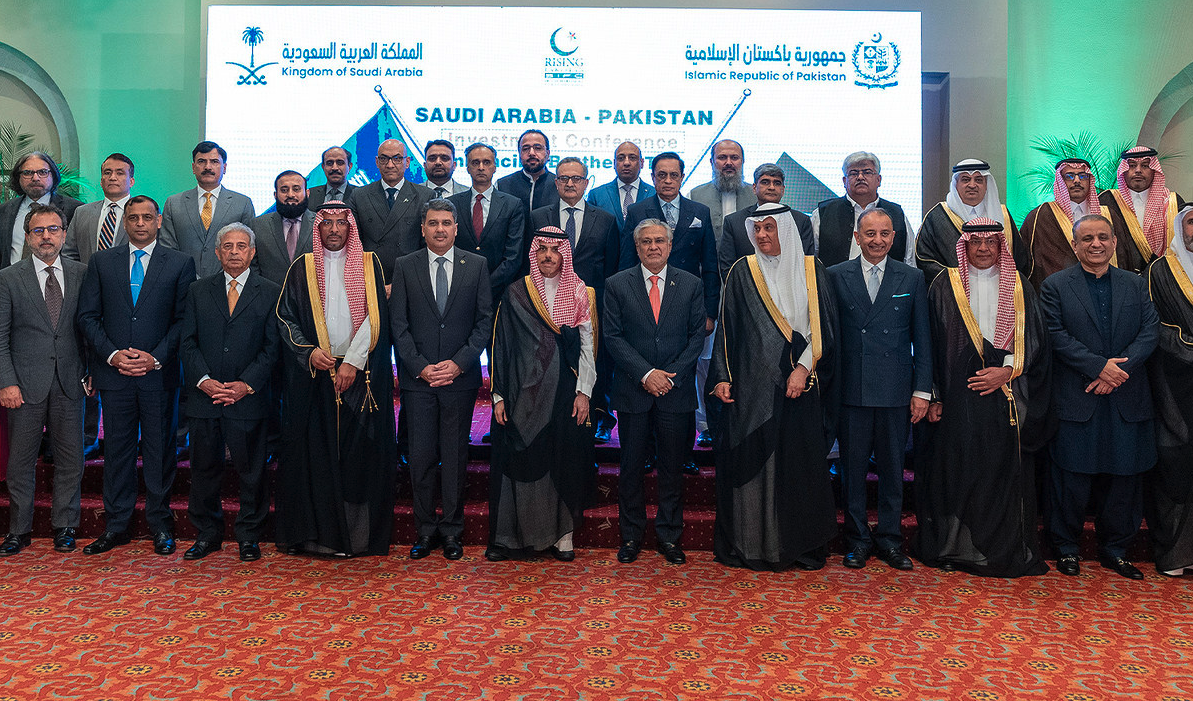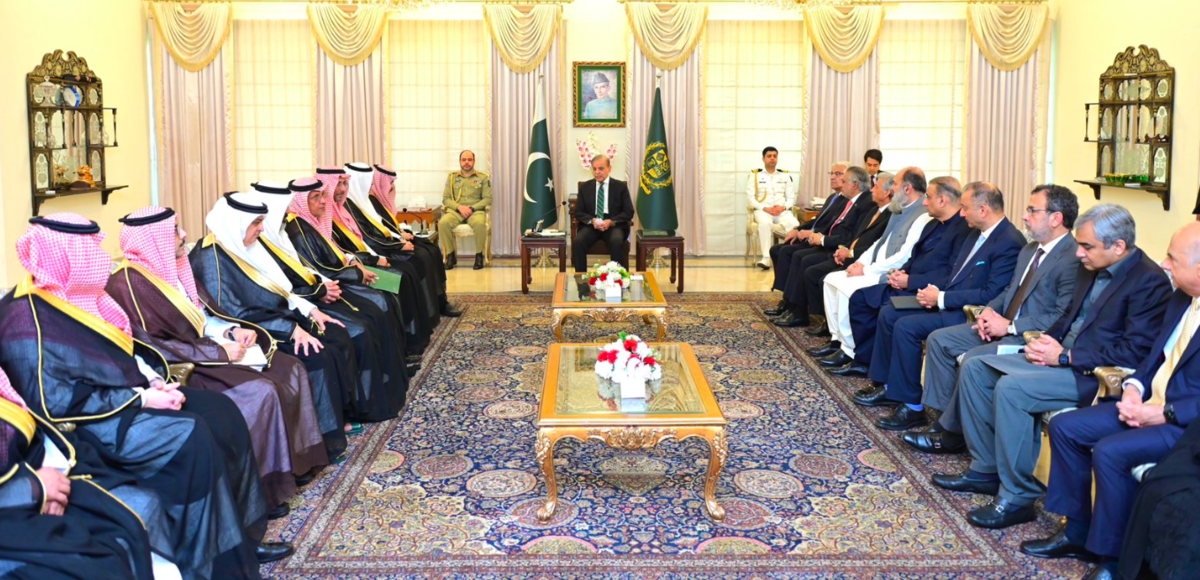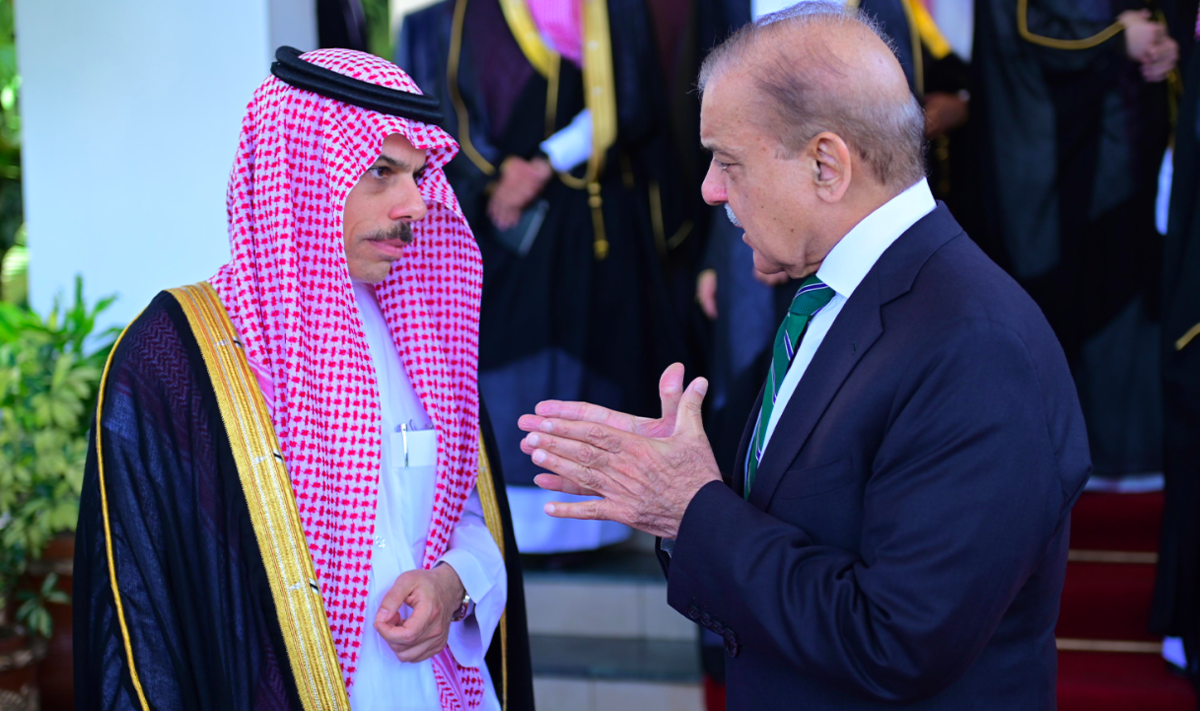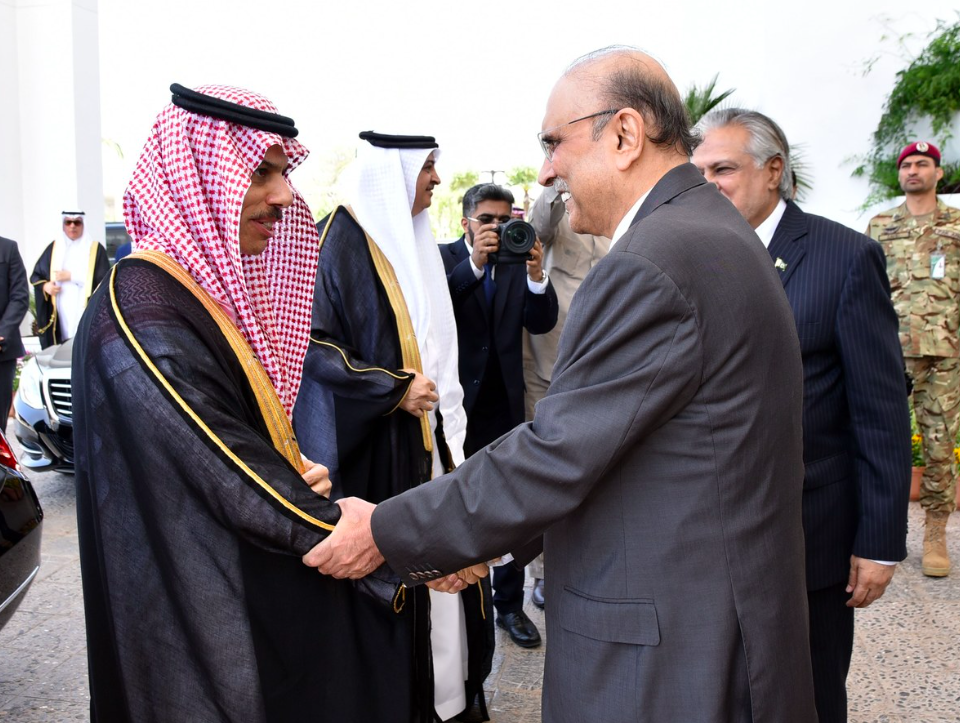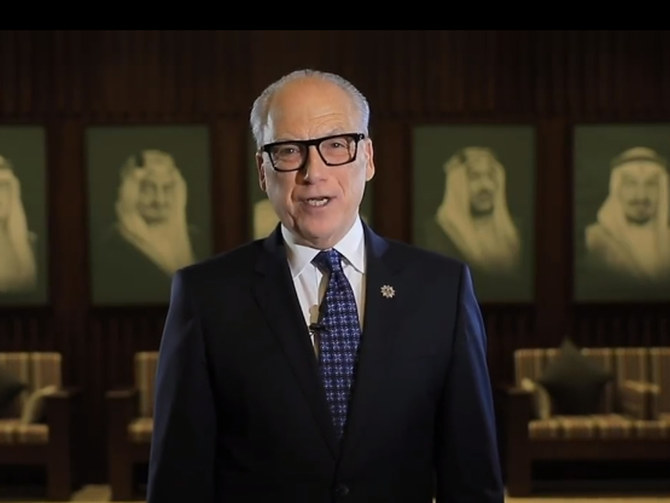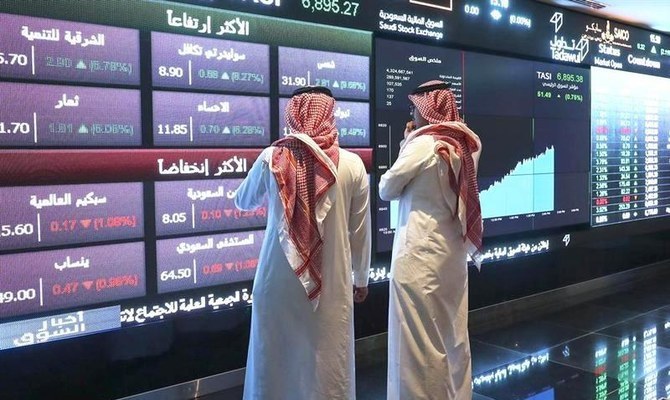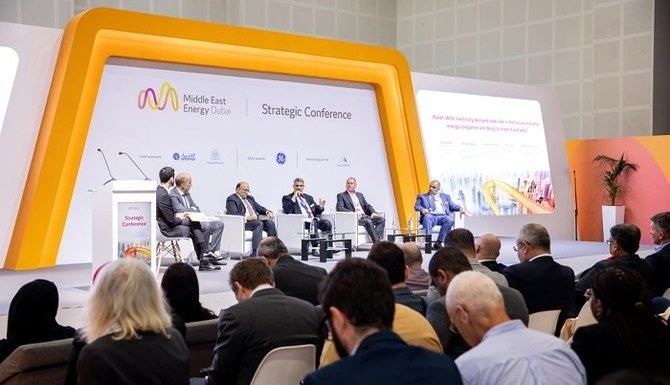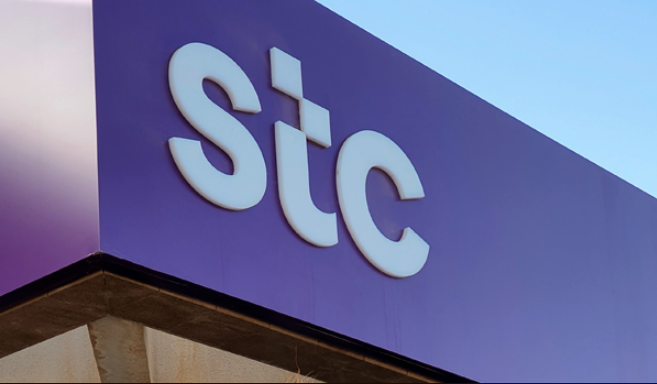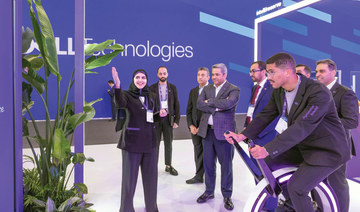DUBAI: John Pagano has been involved in mega-projects around the world, but “none of them will have the impact this will have on Saudi Arabia,” he said.
“This” is the Red Sea Development Company, of which he is CEO. Along with the plan to build a futuristic metropolis at NEOM in the northwest of the Kingdom, and the Qiddiya leisure resort near Riyadh, it is one of the headline initiatives of the Vision 2030 strategy to diversify away from oil dependency.
The Red Sea project is special, Pagano said. Not only because Saudi Crown Prince Mohammed bin Salman fell in love with the area as a youth and was a frequent visitor, and not only because of the stunning natural beauty of the 28,000 square kilometer region of lagoons, archipelagos, canyons and volcanic geology between the two small towns of Al-Wajh and Umluj on the western coast.
Canadian-born Pagano told of how he was “sold” on the idea of running the Red Sea project when Saudi Arabia lured him out of a youthful retirement that mainly involved flying airplanes. “What really caught my attention was the passion and enthusiasm of young Saudis for Vision 2030. It was really quite intoxicating. I thought it could be quite a lot of fun to be part of the transformation of a country,” he said.
Opening up the tourism and leisure industries is a major part of the transformation. At the moment, the Kingdom derives between 3 and 4 percent of gross domestic product (GDP) from this sector, most of it religious tourism from Hajj and Umrah pilgrims. Globally, tourism represents 10 percent of GDP and accounts for 10 per cent of the world’s workforce.
The Red Sea project will eventually inject SR22 billion ($5.8 billion) into the Saudi Arabian economy and lead to the creation of 70,00 jobs directly and indirectly in the Kingdom’s workforce, Pagano said.
“You have this huge opportunity to contribute and help the diversification process by developing tourism and a tourism sector which to a large extent does not really exist,” he said.
The project is certainly tourism, but with a big difference. Definitely out are the package holidays and Costa-style beach frolics. It will not be “Club Med on the Red,” in the words of one of his aides. “We are not seeking to be Dubai,” Pagano said.
BIO
BORN - Toronto, 1959
EDUCATION - BSc in mechanical engineering, University of Toronto
CAREER
- Managing director, Canary Wharf Contractors, London
- President, Baha Mar Development Company, Bahamas
- Managing director, Canary Wharf Group, London
- Principal, Old Fort Capital Investments, London
- CEO, Red Sea Development Company
“It will be a luxury tourism destination that sets new global standards in sustainability,” Pagano said. “The idea is not to build as much on it as possible, and make as much money as we can. The idea is to protect it for generations to come.”
Luxury tourism is the fastest-growing segment of the global market, and high-rolling tourists are willing to pay top dollar for one-of-a-kind experiences. Exclusivity will be set by limiting the number of visitors. Of the 90 islands in the region, only 22 are going to be developed, and annual visits will be capped at one million in 2030, when completion is scheduled.
Nine islands are deemed to be so crucial to the ecology that they will not be built on at all, and access will be carefully controlled. One, Al-Waqqadi island, looked like the perfect tourism destination, but was discovered to be the breeding ground for the rare hawksbill sea turtle. “In the end, we said we’re not going to develop it. It shows you can balance development and conservation,” Pagano said.
If you want to get him really excited, ask about coral. “The rest of the coral reef systems around the world are dying, but this one — the fourth largest in the world — is thriving. We’re trying to figure out why. We’re working very closely with King Abdullah University of Science and Technology (KAUST) and experimenting with coral growing, trying to understand the unique DNA of coral found in this part of the world.
“If you look at it, the Red Sea has warmer sea temperatures and higher salinity values, yet the coral thrives. We’re trying to work out why, and to the extent we solve that mystery, the ambition would be to export that to the rest of the world — help save the Great Barrier Reef or severely damaged Caribbean coral,” he said.

The Red Sea project is home to a number of endangered species, including the hawksbill sea turtle. (Courtesy: Red Sea Project website)
Sustainability is being built into the project’s structure. It will be 100 per cent carbon neutral and powered by renewable energy via solar and wind power, and will make use of advanced technology to solve the storage problems that have so far proved to be obstacles to renewable energy. “The technology is available but nobody has ever done it on this scale before,” he said, pointing to plans to use solar power to make ice by day and use it for cooling at night. There are even plans for “artificial trees” to aid the carbon-capture process.
Pagano is working on another project with KAUST — “Brains for brine” — that seeks to address the problem of excess salination of sea water resulting from the desalination processes widely used in the Kingdom.
But building what will eventually be 8,000 hotel rooms, an airport, a small town for the 10,000 workers on the project, on the coast of one of the busiest maritime navigation channels in the world, presents its own environmental challenges.
He was speaking the week after an Iranian tanker had leaked oil into the Red Sea, but said that commercial sea lanes were far away from the project, and big vessels could not enter the shallow lagoon system anyway.
On-site construction will be kept to a minimum by the use of prefabricated units built elsewhere in the Kingdom and then shipped to the Red Sea for assembly and installation on the islands. He will have to have 3,000 hotel keys by 2022, when phase one of the project is complete and ready to welcome the first of 300,000 annual visitors.
The technology is available, but nobody has ever done it on this scale.
Those guests are estimated to come roughly 50 percent from Saudi Arabia and other Gulf countries, and 50 percent from the rest of the world, with a big proportion from Europe and the experience-seeking markets of Asia.
A big draw of the Red Sea region is that all-year temperatures and humidity are lower than other parts of the region, notably the Arabian Gulf. “It’s much more like a southern European climate,” he said, allowing for year-round business.
Pagano promises visitors “a constellation of experiences,” but what kind of resort will they arrive at? “We had plans for a special visa-on-arrival procedure just for us, but of course we don’t need that now that there is a Kingdom-wide tourist visa,” he said.
When the tourists get there, the resort will feel different from the rest of Saudi Arabia. It will be treated as other “special economic zones” in the Kingdom, with more relaxed social norms and an environment attractive to international visitors, he said.
“There are currently no plans to serve alcohol, but that is not our call, it’s a broader issue. But even without alcohol, there are a potential 1.5 billion tourists in the world Muslim demographic,” he said.
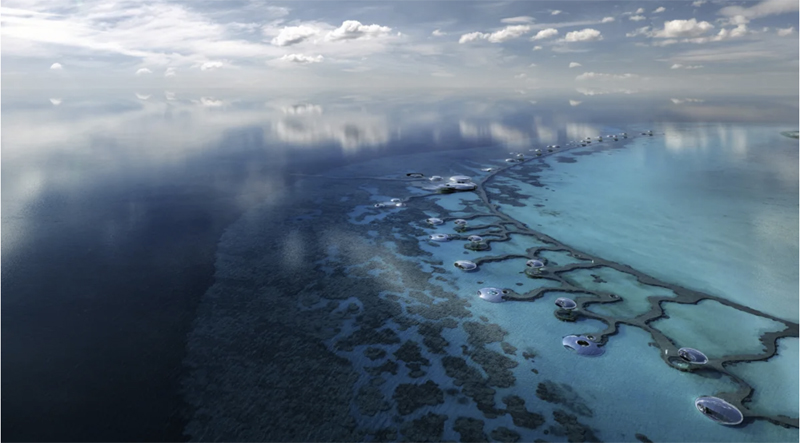
The Red Sea Project is designed to enhance the natural environment for future generations. (Courtesy: Red Sea Project website)
A transformational project of such ambition obviously does not come cheap, and Pagano admits to “many billions of dollars” in total construction and development costs. So far, the bills have been met by the Public Investment Fund, which has committed all the equity capital.
But Pagano is now in the market for “conventional senior debt” in a package that could reach SR10 billion ($2.6 billion). With the big infrastructure project — bridges, roads, a new airport — currently under way and contracts being announced at increasing pace — a fresh batch are promised during the Future Investment Initiative in Riyadh later this month — those funds are needed, he said, and could be in place early next year.
“Plus, we are talking to a lot of investors and looking at the possibility of getting them into the project,” he said. French hotel group Accor is already involved, and he expects most of the leading global hospitality brands to play some part in it too. Contracts to build and operate the utilities on the development are currently out to tender to a number of consortia.
It is all part of the transformation under way in the Kingdom that appears to be unstoppable. By 2030, Saudi Arabia is aiming to attract 100 million visitors a year, with the elite heading to the Red Sea area to sample the “amazing piece of land” that Pagano is developing.
“It’s ambitious, but feasible. It’s starting from a low base and the vision is unprecedented,” he said.






